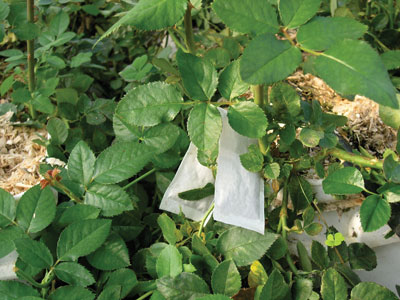
Successful BCAs provide strong theoretical and practical support for application of PGPR in greenhouse production, which ensures the feasibility and efficacy of PGPR for commercial horticulture production.

However, there are still a number of challenges before registration, large-scale application, and adoption of PGPR for the pest and disease management. A number of PGPR have been registered for commercial use under greenhouse and field conditions and a large number of strains have been identified and proved as effective biocontrol agents (BCAs) under environmentally controlled conditions. It is possible to identify and develop PGPR that both suppress plant disease and more directly stimulate plant growth, bringing dual benefit. PGPR suppress diseases by directly synthesizing pathogen-antagonizing compounds, as well as by triggering plant immune responses. The use of plant growth promoting rhizobacteria (PGPR) is a proven environment friendly way of controlling plant disease and increasing crop yield. Excess use of pesticides through chemical disease control measures is a serious problem for sustainable agriculture as we struggle for higher crop productivity.

1Institute of Agricultural Science and Technology Development of Yangzhou University, Yangzhou, China.Xiurong Jiao 1,2,3 †, Yoko Takishita 3 †, Guisheng Zhou 1,2 and Donald L.


 0 kommentar(er)
0 kommentar(er)
